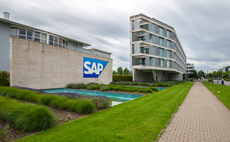User group suggests 'favouritism' may exist, despite a firm company line from UK MD Tim Noble
SAP's UK and Ireland managing director, Tim Noble, failed to dispel increasing unrest among the firm's UK user base at the SAP User Conference 2012 in Manchester this afternoon, as group leaders ca...
To continue reading this article...
Join Computing
- Unlimited access to real-time news, analysis and opinion from the technology industry
- Receive important and breaking news in our daily newsletter
- Be the first to hear about our events and awards programmes
- Join live member only interviews with IT leaders at the ‘IT Lounge’; your chance to ask your burning tech questions and have them answered
- Access to the Computing Delta hub providing market intelligence and research
- Receive our members-only newsletter with exclusive opinion pieces from senior IT Leaders




















